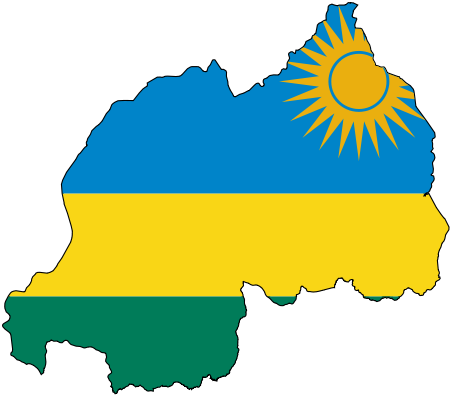Process Systems, Reaction Engineering, and Molecular Thermodynamics
The Process Systems, Reaction Engineering and Molecular Thermodynamics program is part of the Chemical Process Systems cluster, which also includes:
1) the Catalysis program; 2) the Electrochemical Systems program; and 3) the Interfacial Engineering program.
The goal of the Process Systems, Reaction Engineering and Molecular Thermodynamics program is to advance fundamental engineering research on the rates and mechanisms of chemical reactions, systems engineering and molecular thermodynamics as they relate to the design and optimization of chemical reactors and the production of specialized materials that have important impacts on society.
The program supports the development of advanced optimization and control algorithms for chemical processes, molecular and multi-scale modeling of complex chemical systems, fundamental studies on molecular thermodynamics, and the integration of this information into the design of complex chemical reactors.
An important area supported by the program focuses on the development of energy-efficient and environmentally-friendly chemical processes and materials.
Proposals should focus on:
· Chemical reaction engineering:
This area encompasses the interaction of transport phenomena and kinetics in reactive systems and the use of this knowledge in the design of complex chemical reactors.
Focus areas include novel reactor designs, such as catalytic and membrane reactors, micro-reactors, and atomic layer deposition systems; studies of reactions in supercritical fluids; novel activation techniques, such as plasmas, acoustics, and microwaves; design of multifunctional systems, such as "chemical-factory/lab-on-a-chip" concepts; and biomass conversion to fuels and chemicals.
The program also supports new approaches that enable the design of modular chemical manufacturing systems.
· Process design, optimization and control:
This area encompasses the development of algorithms for design, optimization and control of process systems and individual process units.
High priority research topics include process intensification, modular process systems, smart manufacturing, real-time optimization and control of complex chemical systems integrated with sustainability, and optimization of enterprise-wide processes involved in planning, scheduling and control.
· Reactive polymer processing:
Program scope in this area is limited to research that integrates synthesis and processing to engineer specific structures that tune the properties of polymers.
The focus is on processes that address environmental concerns while producing tailor-made macromolecular materials.
· Molecular thermodynamics:
This area focuses on fundamental research that combines principles of thermodynamics and molecular theory to improve chemical processing and synthesis of novel functional materials, such as catalysts, polymers, solvents, and colloids.
Topics includes fundamental studies on self and directed assembly of complex supramolecular structures, computational screening of chemicals and/or materials for desirable properties, and development of advanced computer simulation and visualization techniques.
The ultimate goal is to enable the development of more efficient chemical processes, improve environmental sustainability and water quality, and design functional materials with tailored properties.
Innovative proposals outside of these specific interest areas may be considered.
However, prior to submission, it is recommended that the PI contact the program director to avoid the possibility of the proposal being returned without review.
INFORMATION COMMON TO MOST CBET PROGRAMS Proposals should address the novelty and/or potentially transformative nature of the proposed work compared to previous work in the field.
Also, it is important to address why the proposed work is important in terms of engineering science, as well as to also project the potential impact on society and/or industry of success in the research.
The novelty or potentially transformative nature of the research should be included, as a minimum, in the Project Summary of each proposal.
The duration of unsolicited proposal awards in CBET is generally up to three years.
Single-investigator award budgets typically include support for one graduate student (or equivalent) and up to one month of principal investigator time per year(awards for multiple investigator projects are typically larger).
Proposal budgets that are much larger than typical should be discussed with the Program Director prior to submission.
Proposers can view budget amounts and other information from recent awards made by this program via the “What Has Been Funded (Recent Awards Made Through This Program, with Abstracts)” link towards the bottom of this page.
Faculty Early Career Development(CAREER)program proposals are strongly encouraged.
Award duration is five years.The submission deadline for Engineering CAREER proposals is in July every year.
Learn more in the CAREER program description.
Proposals for Conferences, Workshops, and Supplements:
PIs are strongly encouraged to discuss their requests with the Program Director before submission of the proposal.
Grants forRapid Response Research(RAPID)andEArly-concept Grants for Exploratory Research(EAGER)are also considered when appropriate.
Please note that proposals of these types must be discussed with the program director before submission.
Grant Opportunities for Academic Liaison with Industry (GOALI)proposals that integrate fundamental research with translational results and are consistent with the application areas of interest to each program are also encouraged.
Please note that RAPID, EAGER, and GOALI proposals can be submitted anytime during the year.
Details about RAPID, EAGER, and GOALI are available in theProposal & Award Policies & Procedures Guide(PAPPG), Part 1, Chapter II, Section E:
Types of Proposals.
COMPLIANCE:
Proposals which are not compliant with theProposal and Award Policies and Procedures Guide (PAPPG)will be returned without review.
1) the Catalysis program; 2) the Electrochemical Systems program; and 3) the Interfacial Engineering program.
The goal of the Process Systems, Reaction Engineering and Molecular Thermodynamics program is to advance fundamental engineering research on the rates and mechanisms of chemical reactions, systems engineering and molecular thermodynamics as they relate to the design and optimization of chemical reactors and the production of specialized materials that have important impacts on society.
The program supports the development of advanced optimization and control algorithms for chemical processes, molecular and multi-scale modeling of complex chemical systems, fundamental studies on molecular thermodynamics, and the integration of this information into the design of complex chemical reactors.
An important area supported by the program focuses on the development of energy-efficient and environmentally-friendly chemical processes and materials.
Proposals should focus on:
· Chemical reaction engineering:
This area encompasses the interaction of transport phenomena and kinetics in reactive systems and the use of this knowledge in the design of complex chemical reactors.
Focus areas include novel reactor designs, such as catalytic and membrane reactors, micro-reactors, and atomic layer deposition systems; studies of reactions in supercritical fluids; novel activation techniques, such as plasmas, acoustics, and microwaves; design of multifunctional systems, such as "chemical-factory/lab-on-a-chip" concepts; and biomass conversion to fuels and chemicals.
The program also supports new approaches that enable the design of modular chemical manufacturing systems.
· Process design, optimization and control:
This area encompasses the development of algorithms for design, optimization and control of process systems and individual process units.
High priority research topics include process intensification, modular process systems, smart manufacturing, real-time optimization and control of complex chemical systems integrated with sustainability, and optimization of enterprise-wide processes involved in planning, scheduling and control.
· Reactive polymer processing:
Program scope in this area is limited to research that integrates synthesis and processing to engineer specific structures that tune the properties of polymers.
The focus is on processes that address environmental concerns while producing tailor-made macromolecular materials.
· Molecular thermodynamics:
This area focuses on fundamental research that combines principles of thermodynamics and molecular theory to improve chemical processing and synthesis of novel functional materials, such as catalysts, polymers, solvents, and colloids.
Topics includes fundamental studies on self and directed assembly of complex supramolecular structures, computational screening of chemicals and/or materials for desirable properties, and development of advanced computer simulation and visualization techniques.
The ultimate goal is to enable the development of more efficient chemical processes, improve environmental sustainability and water quality, and design functional materials with tailored properties.
Innovative proposals outside of these specific interest areas may be considered.
However, prior to submission, it is recommended that the PI contact the program director to avoid the possibility of the proposal being returned without review.
INFORMATION COMMON TO MOST CBET PROGRAMS Proposals should address the novelty and/or potentially transformative nature of the proposed work compared to previous work in the field.
Also, it is important to address why the proposed work is important in terms of engineering science, as well as to also project the potential impact on society and/or industry of success in the research.
The novelty or potentially transformative nature of the research should be included, as a minimum, in the Project Summary of each proposal.
The duration of unsolicited proposal awards in CBET is generally up to three years.
Single-investigator award budgets typically include support for one graduate student (or equivalent) and up to one month of principal investigator time per year(awards for multiple investigator projects are typically larger).
Proposal budgets that are much larger than typical should be discussed with the Program Director prior to submission.
Proposers can view budget amounts and other information from recent awards made by this program via the “What Has Been Funded (Recent Awards Made Through This Program, with Abstracts)” link towards the bottom of this page.
Faculty Early Career Development(CAREER)program proposals are strongly encouraged.
Award duration is five years.The submission deadline for Engineering CAREER proposals is in July every year.
Learn more in the CAREER program description.
Proposals for Conferences, Workshops, and Supplements:
PIs are strongly encouraged to discuss their requests with the Program Director before submission of the proposal.
Grants forRapid Response Research(RAPID)andEArly-concept Grants for Exploratory Research(EAGER)are also considered when appropriate.
Please note that proposals of these types must be discussed with the program director before submission.
Grant Opportunities for Academic Liaison with Industry (GOALI)proposals that integrate fundamental research with translational results and are consistent with the application areas of interest to each program are also encouraged.
Please note that RAPID, EAGER, and GOALI proposals can be submitted anytime during the year.
Details about RAPID, EAGER, and GOALI are available in theProposal & Award Policies & Procedures Guide(PAPPG), Part 1, Chapter II, Section E:
Types of Proposals.
COMPLIANCE:
Proposals which are not compliant with theProposal and Award Policies and Procedures Guide (PAPPG)will be returned without review.
Obtain Full Opportunity Text:
NSF Program Desccription PD-20-1403
Additional Information of Eligibility:
The states of Alaska, South Dakota, and Wyoming are the only applicants allocated portions of the available funding for the directed grants under 49 U.S.C.
22907(l)(1) and (2).
See Section C(3)(a) for project eligibility.
The State Department of Transportation in these states must submit applications on behalf of their states.
Full Opportunity Web Address:
http://www.nsf.gov/funding/pgm_summ.jsp?pims_id=505727
Contact:
Agency Email Description:
If you have any problems linking to this funding announcement, please contact
Agency Email:
Date Posted:
2019-09-11
Application Due Date:
Archive Date:
2019-12-12
Social Entrepreneurship
Spotlight
Rwanda as Social Entrepreneur Fund Beneficiary

The Republic of Rwanda has been picked as one of the six African countries as beneficiaries for a new fellowship fund program designed at supporting social entrepreneurs in tackling issues on food security.

